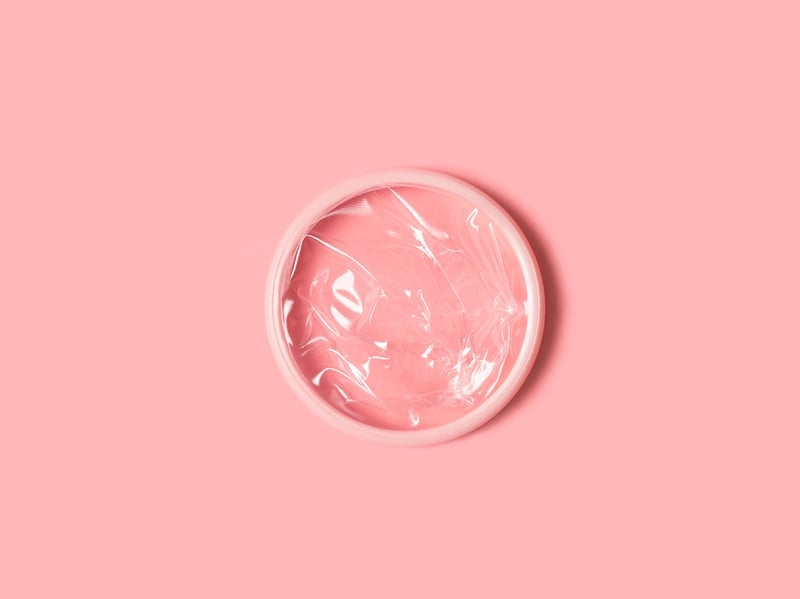Get Healthy!

- Amy Norton
- Posted August 8, 2023
Menstrual Discs Could Help Women With Heavy Periods, Study Finds
For women with heavy periods, some newer menstrual products may offer more security than old-fashioned pads and tampons.
That's among the findings of a new study that tested the absorbency levels of a range of period products -- from traditional pads and tampons, to newer options such as period underwear and reusable menstrual discs and cups.
It turned out that discs had the highest holding capacity, followed by cups and "heavy" day pads and tampons. Period underwear had the lowest capacity, according to findings published Aug. 7 in the journal BMJ Sexual & Reproductive Health.
Those differences are not necessarily surprising -- particularly for anyone who has ever tried different products through trial and error.
But what might surprise people, experts said, is that so little research like this has been done.
In fact, studies of menstruation, in general, are strikingly uncommon: A search of the medical literature for the term "menstrual blood" turns up about 400 articles published over the past several decades -- versus 10,000 on erectile dysfunction, according to an editorial published with the new research.
"That's what's so refreshing about this new study," said Dr. Nichole Tyson, an author on the editorial and a clinical professor of obstetrics and gynecology at Stanford University.
Period products carry labeling descriptions, like "super" and "heavy," to convey their absorbency powers. But only tampons are actually regulated in their absorbency testing, because they are associated with an increased risk of toxic shock syndrome (TSS) -- a rare but dangerous complication of certain bacterial infections.
The point is to help consumers choose the tampon with the lowest absorbency to meet their needs, which reduces the chances of TSS. But even those metrics are based on a tampon's holding capacity for saline, not menstrual flow.
The new research appears to be the first published study to test the range of period products using red blood cells.
That's not a perfect surrogate for a menstrual period, either -- but it's closer to the real thing than saline, said senior researcher Dr. Bethany Samuelson Bannow, an assistant professor at Oregon Health & Science University.
For the study, her team tested 21 period products, including different brands of pads, one brand of tampon at various absorbency levels, one brand of "super" absorbency period underwear, several brands of menstrual discs, and one menstrual cup brand at different sizes.
Menstrual discs and cups are similar in that they are inserted into the vagina and meant to be emptied, cleaned and reused. Discs sit a little higher in the vagina, and have been marketed as having a higher holding capacity; cups, on the other hand, may be a bit easier for new users to insert and remove.
Bannow and her colleagues found that menstrual discs, indeed, had the highest capacity of the products they tested -- with one brand holding 80 mL of blood cells. For comparison, the highest-absorbency tampon held 34 mL, while the large-size menstrual cup held 35 mL.
Bannow, however, did not want to frame the findings as a product endorsement.
For one, she said, "there are a lot of different reasons that a particular option might be good for you."
As an example, Bannow pointed to women who have jobs that leave them with few bathroom breaks over the course of the day: Regardless of whether they have "heavy" periods, they might prefer a menstrual disc. On the other hand, Bannow said, someone with a history of sexual trauma might want to use period underwear, even if the absorbency level is lower.
There's also the issue of cost. Menstrual cups and discs typically fall in the range of $25 to $35, but because they are reusable, they end up being cheaper than disposable products.
Tyson agreed that women base their product decisions on various factors, not just absorbency levels.
"But I think it's important to be aware there are different options available," Tyson said.
And that, both doctors said, speaks to a larger issue: Girls and women are not necessarily aware of their options because menstruation is still something of a taboo subject -- whether in conversation between mothers and daughters, friends, or doctors and patients.
"Period conversations are still not normalized," Tyson said. "Menstruation shouldn't be embarrassing or stigmatized."
Bannow agreed. "I really wish we could get rid of this menstrual taboo."
That, she said, might encourage more patients to talk to their doctor when they have heavy periods that are interfering with the quality of their life.
In some cases, heavy menstrual flow may require an evaluation for an underlying health condition.
And, both doctors said, women with heavy periods have options other than discs. Menstrual "suppression" with medication, including certain birth control pills, can reduce or eliminate periods.
"That's an area that's definitely riddled with myths," Tyson said. "But it's a very safe option for people who do not want to have periods."
More information
Planned Parenthood has more on menstrual cycles.
SOURCES: Bethany Samuelson Bannow, MD, assistant professor, medicine, Oregon Health & Science University, Portland; Nichole Tyson, MD, clinical professor, obstetrics and gynecology, Stanford University School of Medicine, Stanford, Calif.; BMJ Sexual & Reproductive Health, Aug. 7, 2023, online
